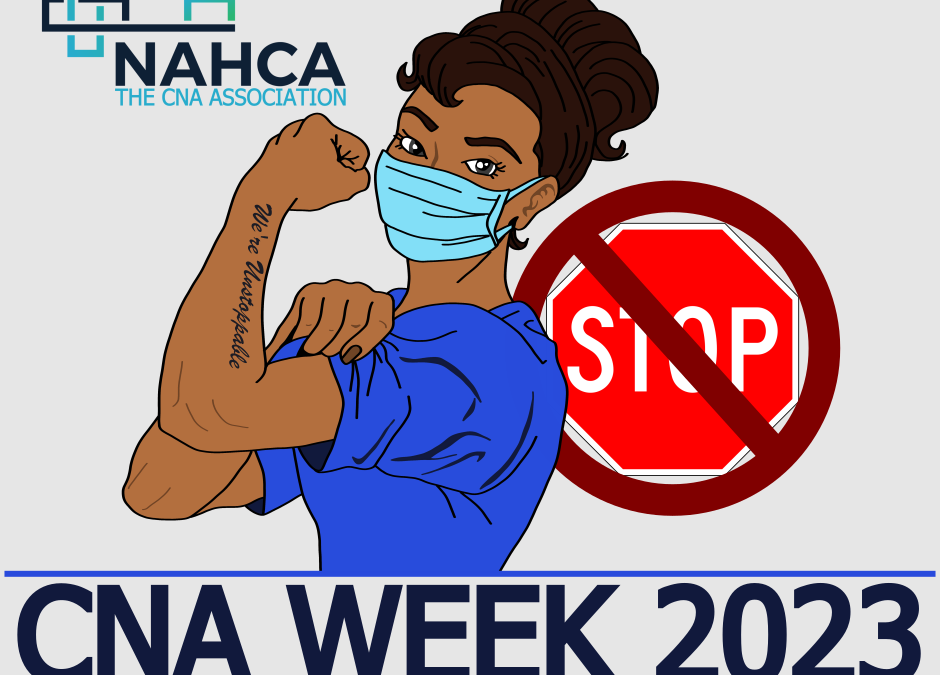Each year, the third week of June is a time to recognize and honor the work of certified nursing assistants with CNA Week. Celebrated this year from June 15 to 23, the National Association of Health Care Assistants (NAHCA) sponsors the week and helps draw attention to the vital work certified nursing assistants do.
According to the NAHCA, nearly one million CNAs are in the workforce. Primarily working with elderly patients and those with disabilities, CNAs work in skilled nursing centers, assisted living communities, and staffing and home health agencies. Certified nursing assistants also provide vital work in hospice and hospital facilities.
This year’s CNA Week theme is “We’re Unstoppable” to show how the work of CNAs provides a solid foundation of essential care for an often-frail patient population that requires hands-on direct health care and for many activities of daily living.
Since 1995, the NAHCA has advocated for CNAs and for the people they care for. The organization helps promote this professional career path as one that is meaningful and particularly satisfying for certified nursing assistants who value building lasting relationships with those they care for. Because many CNAs remain committed to a lifelong career as a CNA, the organization also promotes continuing education for CNAs, better workplace conditions through recognition, education, advocacy, and motivation.
To help ensure the success of CNAs and the highest quality of caregiving, the NAHCA advocates for CNAs by working closely with healthcare providers and the long-term care facilities where many CNAs work.
CNAs work under the direct supervision of a nurse and so must learn how to advocate for themselves and for their patients. Communication skills are important for a CNA, whether it is for conveying patient information to a supervisor or in working with a patient or family members. Because CNAs work so closely with patients, they are excellent at noticing concerning changes in a patient or in hearing about family or caregiver concerns. They can observe any fluctuations in movement, speech, eating patterns, or mood because they are around patients as they perform tasks to help them with bathing, eating, moving, or taking medication. CNAs may also use technology to help record healthcare details or to chart tasks or patient changes.
And CNAs often develop close relationships with patients because of the routine they provide. Their schedule might allow them to see the same patients for breakfast every day, for example, and they can talk about how the night went or what they need for the day. Frequently, CNAs in care facilities spend time talking with patients, listening to their stories, and being a comforting presence that is especially welcome.
If you are a CNA or have CNAs on your team, take time this week to appreciate all this role brings to the healthcare team.
- A Camp Nurse Volunteer Shares the Joy - April 30, 2024
- Is the FNP Program Right for You? - April 24, 2024
- WOC Nurses Week Highlights Specialty - April 16, 2024



